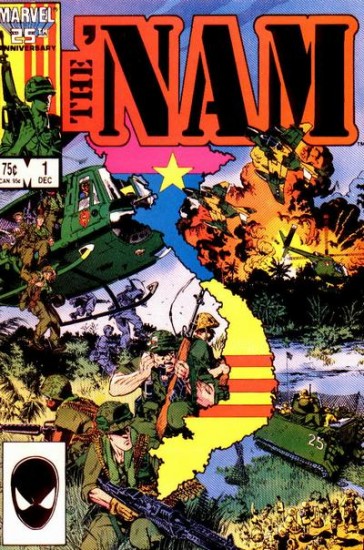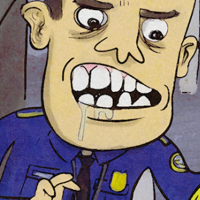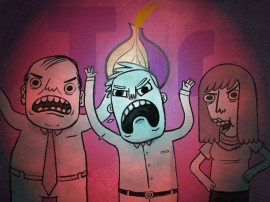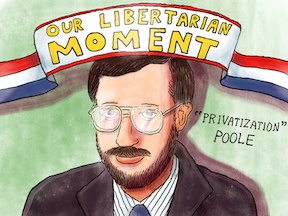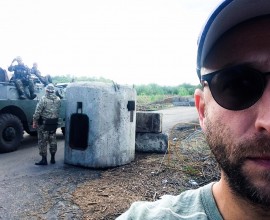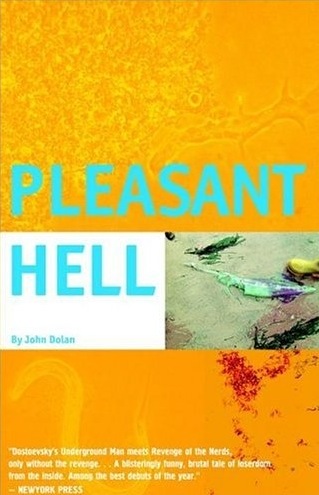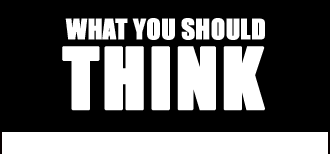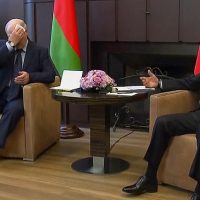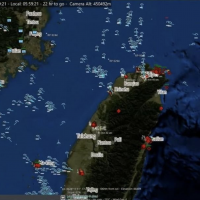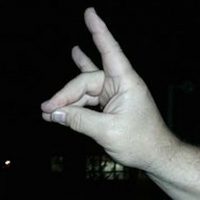Mel Gibson’s Vietnam movie We Were Soldiers just hit New Zealand, so I’ve had to deal with endless commercials of that sagging beagle-face of his, carefully smeared with artificial dirt and smoke, rallying the troops in a laughable attempt at a Southern accent. Having seen The Patriot, featuring Mel doing a similarly rotten Carolina accent as he ran around chopping up Redcoats with a teeny little tomahawk, I think I’ll skip his remake of Vietnam.
But it did send me back to reread the book Mel bought to use as the basis of the film: We Were Soldiers Once…and Young. It seemed like a good occasion to review some of the innumerable Vietnam memoirs I’ve bought over the years.
Yes, chillun, I am old enough to remember that once upon a time, nice people didn’t even want to talk about Vietnam, let alone read about it. Now how did it git so’s they don’t hardly wanna talk ’bout nuthin’ else? Gather ’round the fire and I’ll tell you all about it.
Avoiding Nam was pretty much a fulltime job for sensible Americans of the 70s. It didn’t look like fun yet — not when it was actually happening. That took several years and about a thousand war memoirs. At the time, it looked like a remarkably uninteresting war, with wretched losers from inland America standing around the paddies twitching nervously, wondering whether the water buffalo in the next field was going to whip out a Kalashnikov and start shooting.
That changed very slowly. The first book to make Nam seem cool was Michael Herr’s Dispatches. This was the first Nam book taught at universities (I encountered it in a course at Berkeley). Herr wrote as one of the college boys who didn’t fight. He was there to watch, write, and make a name for himself. He wrote guilty erotica, and spoke for the smart guys who got themselves deferments but always wondered what they would’ve done if they’d gone: “You know how it is, you want to look and you don’t want to look. I can remember the strange feelings I had as a kid looking at the war photographs in Life…”
Since the deferred guys were the core of the teaching pool at most American universities, they tended to assign Herr’s book, and it became one of those “instant classics” which make it more for demographic than artistic insights. Herr’s book was a first draft of Apocalypse Now, with Hendrix soundtrack and quick cuts between cool gore and Saigon lies. It doesn’t read particularly well now; there’s too much caution there, like someone trying to do Hunter S. Thompson after halfheartedly inhaling one tiny line of speed. But then that’s always the way to crack the upscale porn market: just a little whiff of the really hard stuff, enough to grab the safe people. After all, the safe, guilty males of the Nam era had two advantages over the ones who went: they had graduated to teaching jobs and could force large numbers of students to buy the book — and they were alive.
Herr’s book came out in ’77, two years after the fall of Saigon. It was a while before anybody wanted to hear from the losers who’d actually gone and fought in Nam. It took a lot of concerted lying, in films like Deer Hunter, to erase all those images and persuade the home folks that the enterprise had been a noble one.
In strictly literary terms, this great lie was of some benefit, because there are few genres as rich as the war memoir. Virtually anyone who saw combat and has a decent memory can write a decent book about it — and Vietnam, a war characterized by thousands of small skirmishes, was richer in incident and gore than an inner-city basketball tournament. When next you hear that rough voice asking, “War — what is it good for?”, you tell it: “First-person memoirs, that’s what!”
By 1981, the memoirs were coming fast. The first and in some ways still the best was Everything We Had, a collection of oral reminiscences by 33 vets who’d done everything from nursing the wounded to slitting throats with Bob Kerrey and his pals. I’d still recommend this book as a starter-kit for the prospective Nam fan, because the 33 voices offer something for virtually everyone. Parts of the book are very funny, as when Gayle, the cute li’l nurse, recalls her answer when asked if she’d serve on a ward for Vietnamese casualties: “And I said, ‘No, I would probably kill them.’ and she said, ‘Well, maybe we won’t transfer you there.'” And they say the Army has no heart!
By the early 80s, it was not just cool to’ve served in Nam; it was glorious. It was, in fact, the only sort of martial glory available (Grenada didn’t quite carry the same “cachet,” as they said in the Reagan era.) Every Vet still alive and compos mentis — and some who weren’t — headed for that early-model KayPro or Northstar keyboard to turn his ranting into cash. They were a little confused at first, having been shunned and pitied as they dragged their way from halfway house to detox to medium-security institution…but slowly a canny ambition shouted down the voices babbling in their addled heads with the news that the war stories which had driven the wife and kids to move out with no forwarding address were now box-office boffo.
And damned if many of them, fingers trembling on the keyboard, one hand on the Jack Daniels or rolled-up twenty, didn’t hunt-and-peck out some quite good books.
This high literary output was a delayed gift of the utter lack of strategy which doomed the American enterprise in Vietnam: a war which consisted largely of sending small contingents of infantry out into the jungle to find the enemy, usually by getting ambushed, is bound to be a military disaster — but equally bound to produce an extraordinary number of fantastic combat tales. As Walter puts it in Big Lebowski: “Me and Charlie, eyeball to eyeball.” Throw in the treachery of the South Vietnamese, the social and racial bombs going off non-stop back home, the feeling of abandonment, the music — greatest soundtrack of any war ever — and you had the elements of better stories than more intelligently-conducted wars could ever yield. (If there were any true aesthetes worthy of Oscar Wilde’s mantle, they’d’ve agitated for the continuation of the war at all costs. Alas, dreary Utilitarian ethics have conquered us so thoroughly that not a single voice urged the continuation of the war as the greatest performance art of the century.)
I’ve read a dozen of these memoirs, and enjoyed almost all of them. They come in all flavors. There’s the raunchy defeatism of F. N. G., which describes a “fuckin’ new guy” entering an infantry squad after Tet, when the Americans had pretty much given up trying to win and were fighting a strange, highly mobile but essentially defensive war. Then there’s Once A Warrior King, describing one very conservative Virginian’s relatively straightforward war, working with a fiercely anti-VC village in the Delta. This is Greene’s Quiet American told by the quiet A. himself, as it were — and he tells a good story. It’s the food I remember best, in that one: the long descriptions of roasted rat with fish-sauce. That’s one of the delights of war and prison memoirs: you can count, in these solidly grounded stories, on some excellent descriptions of meals good and bad. (The POW memoir, combining the genres, often yields the most mouth-watering descriptions of all; if you want a book full of the delight of eating, read Brendan Behan’s one good book, Borstal Boy.)
The best of all these might be Chickenhawk, the story of a helicopter pilot who was, as Martin Sheen says of “Chef” in Apocalypse Now, “…wound up a little too tight for Vietnam.” Robert Mason, the pilot-narrator, takes the reader in and out of so many LZs, hot, cold and medium, that you develop a veteran’s wince everytime his slick starts descending toward the purple smoke.
One of the many delights of Mason’s book is that it describes the battles for the Ia Drang — the same campaign glamorized in We Were Soldiers Once…and Young, the book Gibson filmed. The campaign, which is depicted as a noble, though doomed, strike for freedom in We Were Soldiers…. doesn’t come off so well in Mason’s memoir. In fact, he and his fellow pilots seem to have done something the generals in charge of the operation didn’t do: read the books about earlier French campaigns against the Viet Minh in that same valley. Mason and his drunken buddies end up predicting the failure of the campaign while their superiors are still sending home the sort of communiques which did so much to cement the American Army’s reputation for…er, “emphasizing the positive,” let’s say.
But Mason’s topper, his most brilliant passage, comes at the very end, in the epilogue summarizing his messed-up return to civilian life. Here’s the superb two-paragraph conclusion, describing his next move after the early drafts of his Nam memoir had been rejected and he’d failed in everything he tried since getting back to The World:
“What did the desperate man do? I can tell you that I was arrested in January, 1981, charged with smuggling marijuana into the country. In August 1981, I was found guilty of possession and sentence to five years at a minimum-security prison. I am currently free as of February 1983, appealing the conviction.
“No one is more shocked than I.”
Just roll that last sentence over on your tongue. “No one is more shocked than I.” Now there is a meal. Even the fussily correct grammar, that annoying “…than I” rather than the colloquial “than me” or “…than I am”; so perfectly droll, such a change from the Nam dialogue in which every other word is “fuckin'”. And the grand historical irony, that the junked helicopter jock should become desperate enough to sell his one skill to the only people who wanted it, the drug dealers, designated New Enemy of the Reaganites. And the timing! Mason’s manuscript got four rejections in the years leading up to 1981, when the memoirs started appearing. A little later, and he’d’ve been cool. But that would have been disastrous. To go to prison for piloting a helicopter full of drugs, albeit unworthy boring drugs like marijuana, even as that great war-dodging hypocrite Reagan shoved his leathery grin in front of the flag — ah, It’s a fate better than death.
This article was published in The eXile on June 28, 2002
November 30th, 2013 | Comments (1)



